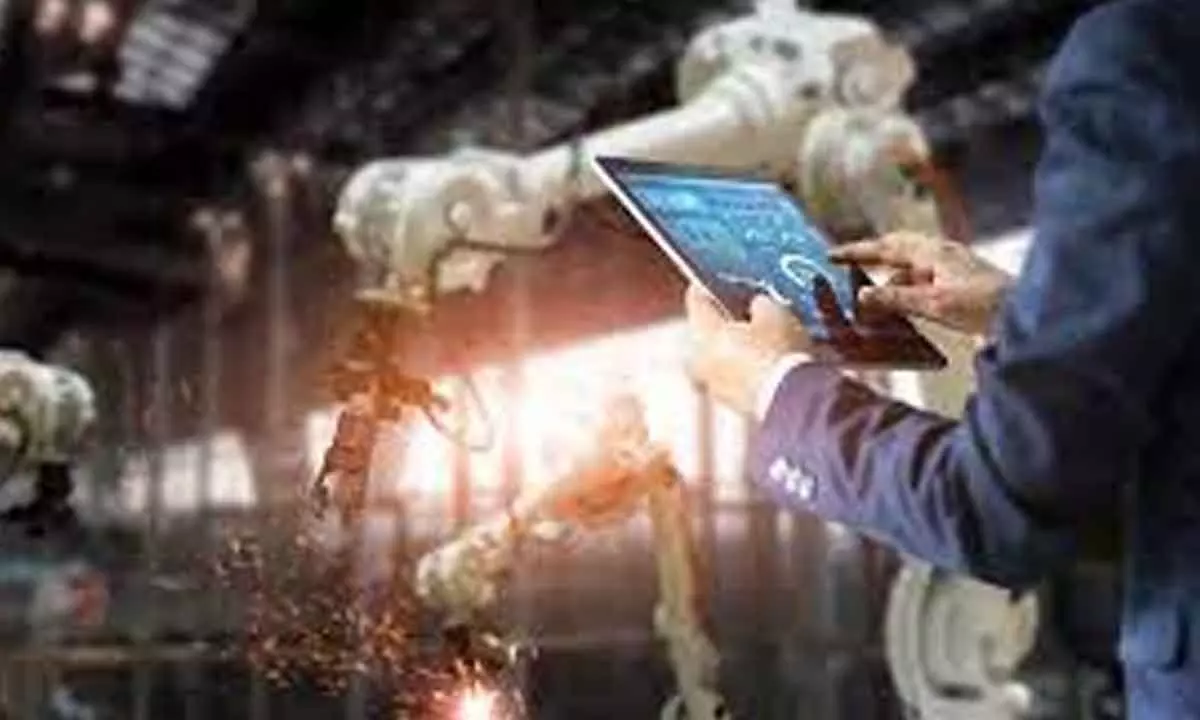Smart manufacturing: A win-win for planet, profits
image for illustrative purpose

The research group Smart Sustainable Manufacturing focuses on the development of automated, flexible and shared production facilities for prototypes and small series that can be used to experiment, exchange experiences and share knowledge.
Sustainable production aims at creating products from processes that minimize environmental impact, energy consumption and natural resources. Customers and markets are ever more leaning towards digital, custom, and flexible solutions with lower environmental impact.
The United Nations laid out sustainability objectives for enterprises in its Sustainable Development Goals. It set targets around low-impact industrialization, energy-efficient buildings, and smart manufacturing. Industry 4.0 can play a major role in these initiatives by combining physical industrial operations and production with digital technologies like Internet of Things (IoT) and artificial intelligence (AI) to help companies transform operations for the better.
According to CapGemini, Sweden is in the top five nations rolling out smart factory initiatives.
The industrial sector is very important in the Nordics, and comprises 77 per cent of exports value in Sweden alone. But in addition to making a major industry more competitive and efficient, Industry 4.0 can drive greater sustainability.
A circular economy approach is one where manufacturers design products to be reusable by their nature. It’s also been called “built-in recyclability”. Think of companies producing electrical devices that can be simple to repair rather than having built-in obsolescence.
Circular economics encourages companies to reuse resources, components, and raw materials as much as possible to increase the lifespan of products. A byproduct of it is also to recycle materials and components that have reached the end of their useful lives as materials and components in new goods.
The current 17 per cent contribution of manufacturing to GDP in India needs to be elevated to 25 per cent, not just for economic growth but to generate more jobs.
Focusing on key sectors like Automotive/EVs, FMCG/CPG, Chemicals, Life Sciences, MMC, as well as high-tech manufacturing sectors such as Semiconductors, Mobile Devices, and Data Centers, India must address the existing gaps. This involves developing large-scale manufacturing facilities that not only mass produce for domestic consumption and exports but also be smart to drive efficiency and zero waste.
India Inc should invest in research and development, encourage technology transfers, form global partnerships, and attract private investments. With policy incentives and various initiatives, the Indian manufacturing market has the potential to reach $1 trillion.
With manufacturing output, new orders and employment levels falling for much of 2023, the manufacturing industry is looking for ways to quote, sell and manufacture more efficiently in 2024.
Industrial automation has been a driving force in manufacturing since the first industrial revolution. In 2024, we will see a noticeable shift as developments in software solutions and robotics make automation more accessible and cost-effective.
Robotic automation can be used to streamline various production processes, from material handling to finishing operations.
Automation, an enduring ally in manufacturing, is poised for significant integration. To fully embrace this transition, companies should focus on incorporating robotics, AI, and machine learning seamlessly into their processes. Precision and efficiency will be the bedrock of this integration, demanding a meticulous approach to technology adoption. Manufacturers should view automation as a cost-cutting tool and a fundamental redefinition of their operational ethos. Prioritizing skill development among employees to interact with and manage these smart machines is crucial. Investing in training programs ensures a workforce adept at navigating the intricate landscape of automated manufacturing. The shift towards eco-friendly practices becomes a competitive advantage when rooted deeply in the fabric of the company's values.

